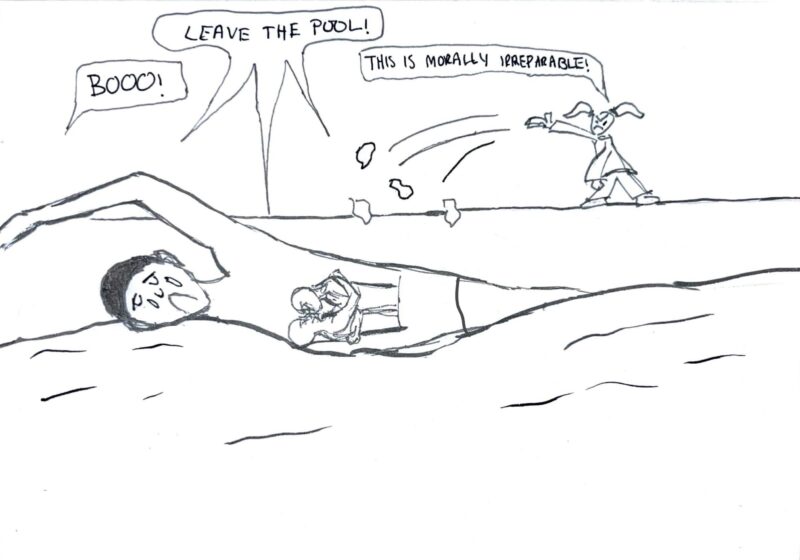“You’re beautiful,” said Aminé, very politely.
“I know!” screamed the crowd in response.
“You’re very fucking beautiful.”
This call and response continued throughout Aminé’s high-energy, beautiful firework of an intimate show in Feldman Ballroom this Yellowjacket Weekend.
He burst onto the small stage with “Yellow,” the warm, easy second track from his 2017 debut album “Good For You.” But performed live, “Yellow” ricocheted off the small ballroom’s walls with the heavy, bass-fueled weight of any other bumping/bopping/slapping banger, and most of that energy came from Aminé himself.
Throughout, I was pleasantly surprised by his infectious, music-worshipping jumping around, screaming words until his voice sounded raw, like it was coming directly from his gut. He went through a few tracks from his most recent album “One Point Five,” including “Blackjack,” “Why?,” “Shine,” and “Cantu.” He spit out lines like “Shawty wanna fuck for a picture / Bitch, this ain’t a Groupon” like they were too hot to keep in his mouth.
During “Sugar Parents,” another “One Point Five” track, super crystalline and sparkly, he invited the audience to sing, “I could be a sugar daddy, but I’d rather not / That’s how I keep my money, baby,” which was amusing coming from a bunch of (mostly) white, (probably) broke college kids.
Personal amusement aside, I loved when Aminé had the crowd singing. Everyone was totally locked in and engaged. When Aminé told his crowd to jump, the unspoken question was “How high?”
This symbiosis Aminé created made the show’s standout moments even more satisfyingly free. After getting everyone dancing with the huge “Good For You” track “Spice Girl,” Aminé’s DJ put on the real Spice Girls monolith hit “Wannabe.”
The room gleefully sang “If you wanna be my lover / you gotta get with my friends,” and when the first chorus ended, they cheered the kind of cheer you let out when your friend blows out birthday candles.
Eventually came the time for Aminé to play his own mega-hit, “Caroline.”
There’s a kind of mythos that begins to surround a song when it becomes uber-famous, one that transcends the artist as the song becomes its own cultural fixture. This mythos often makes artists resist engaging with their hits, like the song is too big or too quick to please the audience.
Aminé resolved this problem generously, performing half of “Caroline” three ways — one with a soft piano backing track, one with the beat of the original recording, tenacious and twerk-worthy, and one a cappella.
The room again had that kind of unity that comes when everyone is saying the same thing: “Caroline, don’t you know that I want you to be mine?”
I couldn’t help feeling that I had been watching someone perform all their favorite songs in their bedroom mirror. Aminé performed like that, with delightful abandon and an intimacy hard to harness on our cold little campus.



